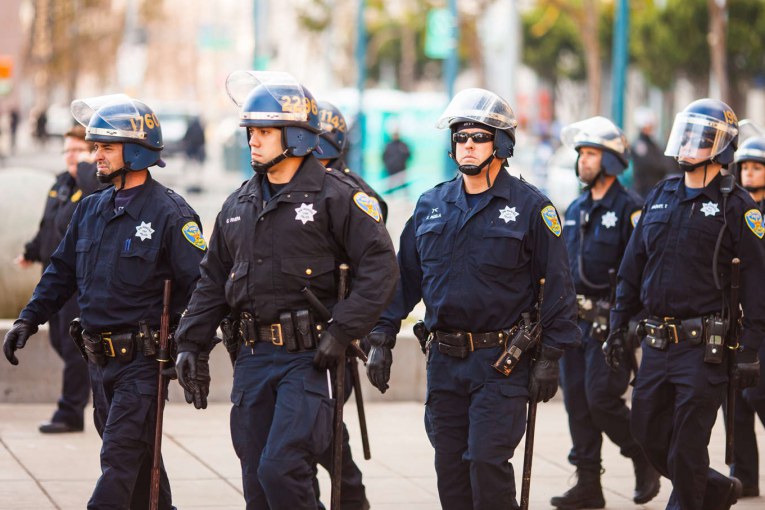

By Vanguard Staff
San Francisco, CA — SF Supervisor Dean Preston on Tuesday called for a hearing on the use of taxpayer funds for propaganda designed to perpetuate a growing policing budget or undermine efforts for police accountability and reform. The hearing will be the first of its kind and will shed light on taxpayer-funded communications, media, and press offices, as well as their costs, policies, and procedures around conveying accurate information about public safety.
Propaganda is defined as “the spreading of ideas, information, or rumor for the purpose of helping or injuring an institution, a cause, or a person.” (Merriam-Webster). The term “copaganda” has been used by advocates and journalists to describe the phenomenon of media manipulation by law enforcement agencies and their promoters to influence public opinion regarding police and policing issues.
“Ultimately, the power of so-called ‘copaganda’ comes from the way it shapes people’s perception of crime, public safety, and potential solutions to societal issues,” said Preston. “Just as everything looks like a nail to a person with only a hammer, the constant barrage of media calling for more police—regardless of crime data—has consequences on what people believe they need to be safe.”
Through the hearing request, and an accompanying formal Letter of Inquiry, Preston hopes to shed light on the scope of taxpayer funds for media work that upholds the status quo growth of police in the City budget. According to a March 2020 staffing report, the San Francisco Police Department has 10 employees in its strategic communications and media relations unit, which is larger than the department’s legal unit and includes a full-time videographer. Similarly, per information provided by the Controller, the Mayor’s Office currently spends over $1 million annually solely on staffing for communications, media, and press.
However, despite both units’ significant staffing, the public knows very little about how the specialized units operate, their total costs, or what—if any—policies are in place to protect the public from misinformation on public safety issues. The hearing will provide a unique opportunity to discuss the press offices’ existence, funding, and policies on the record as the City heads into budget season.
“The use of propaganda to justify bloated police budgets is a reality we need to address in an honest and transparent way,” said Preston. “We cannot continue to ignore its potential effects on our City’s policies, legislation, and priorities when it comes to policing and public safety. These are taxpayer funds, and our residents deserve to know how they are being spent.”

Be careful what you wish for.
Suppose that this proposal becomes reality. A government entity with a public-funded media outlet is can become a target of full public hearings on the assertion that it’s used to propagandize rather than just inform.
A solitary board supervisor (while, ironically, using the same propaganda methods like the ones he’s condemning) is calling for public hearings on the methodology being used. Start counting now, the number of times we’re going to hear the catchy phrase, “Copaganda.”
Virtually every public policy group has a public information component. In many instances, each member of a legislative or executive body has a PR person or body, funded by government funds. It’s the inevitable consequence of our vast and ever-growing Social Media phenomenon.
If a precedent is set where any one person, public or private advocacy group, or any elected or appointed official, can demand a public hearing on media operations funded by public funds imagine what that would become. Instead of devoting precious time to addressing and solving the many ills of our society, they would be their own PR people for attacking and defending, and participating in endless numbers of public hearings.
So who checks the supposed facts coming from the soft on crime agencies? And as we’re finding out, because of progressive justice policies and lenient results people aren’t bothering to report crimes.
Seems to me that no one checks the accuracy of statements from public entities. As we saw even in the extreme example of the Davis Picnic Day incident and the false press release by the chief, there is no recourse or consequences when the information dispensed is shown to be false. Given that public statements have proliferated in the social media age, that would seem to call for some sort of oversight.
It seems to me that we’re becoming more like Russia everyday.
Why is it always the left who is now trying to shut down free speech?